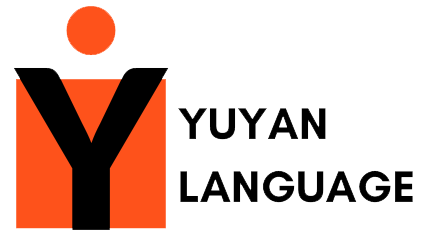
Learn JAPANESE
Japanese is one of the most useful languages to know for those who work in the automotive, communications, and financial sectors.
The Japanese language is the ninth most spoken language in the world, with 128 million people speaking it as their first language in only two countries. Globally, Japanese is spoken by 128.3 million speakers. As the Asian economy rises, more opportunities for work will be available. Japanese is a language that is not commonly taught or studied, like French, German, or Spanish.
Learning Japanese will boost your professional value. When you learn Japanese, you’ll have fewer opportunities available in different fields, such as business, social sciences, humanities, technology, science, journalism, and tourism. If you want to be a translator for the government or a language service provider, your competition is lower when you speak Japanese compared to other more commonly taught languages.
You could also have better chances of promotion. If you’re working for an international corporation, speaking a foreign language like Japanese creates more opportunities for you to be assigned to an overseas branch.
There are a total of five (5) levels in Japanese, called N5, N4, N3, N2, and N1, where “N” stands for “Nihongo”, which means Japanese in Japanese language and N5 is the beginner level and N1 is the most advanced level.
N5 (this is the BASIC level of the Japanese language). One will gain the ability to understand some basic Japanese.
In N5, you will learn about 100 kanji and about 800 vocabulary words One is able to read and understand typical expressions and sentences written in hiragana, katakana, and basic kanji.
One is able to listen to and comprehend conversations about topics regularly encountered in daily life and classroom situations, and one is able to pick up necessary information from short conversations spoken slowly.
N4 and N5 measure the level of understanding of basic Japanese mainly learned in class. N1 and N2 measure the level of understanding of Japanese used in a broad range of scenes in actual everyday life. The ability to understand basic Japanese.
One is able to read and understand passages on familiar daily topics written in basic vocabulary and kanji. One is able to read 300 Kanji and 1,500 vocabulary.
One is able to listen to and comprehend conversations encountered in daily life and generally follow their content, provided that they are spoken slowly.
N3 is a bridging level between N1/N2 and N4/N5. It means the ability to understand Japanese is used in everyday situations to a certain degree.
One is able to read and understand written materials with specific content concerning everyday topics. One is also able to grasp summary information such as newspaper headlines. In addition, one is also able to read slightly difficult writing encountered in everyday situations and understand the main points of the content if some alternative phrases are available to aid one’s understanding.
One is able to listen to and comprehend coherent conversations in everyday situations, spoken at near-natural speed, and is generally able to follow their content as well as grasp the relationships among the people involved.
The ability to understand Japanese is used in everyday situations, and in a variety of circumstances to a certain degree.
One is able to read materials written clearly on a variety of topics – such as articles and commentaries in newspapers and magazines, as well as simple critiques, and comprehend their contents. One is also able to read written materials on general topics and follow their narratives as well as understand the intent of the writers.
One is able to comprehend orally presented materials such as coherent conversations and news reports, spoken at nearly natural speed in everyday situations as well as in a variety of settings, and is able to follow their ideas and comprehend their content. One will also be able to understand the relationships among the people involved and the essential points of the presented materials.
The ability to understand Japanese is used in a variety of circumstances. This is the advance level of this language.
One is able to read writings with logical complexity and/or abstract writings on a variety of topics, such as newspaper editorials and critiques, and comprehend their structures and contents. One is also able to read written materials with profound content on various topics and follow their narratives as well as understand the intent of the writers comprehensively.
One is able to comprehend orally presented materials such as coherent conversations, news reports, and lectures, spoken at natural speed in a broad variety of settings, and is able to follow their ideas and comprehend their contents comprehensively. One is also able to understand the details of the presented materials, such as the relationships among the people involved, the logical structures, and the essential points.
Start Learning JAPANESE
We would also like you to visit our “FAQs – Frequently Asked Questions Section” as you may have few questions in your mind to find an answer before deciding anything.
